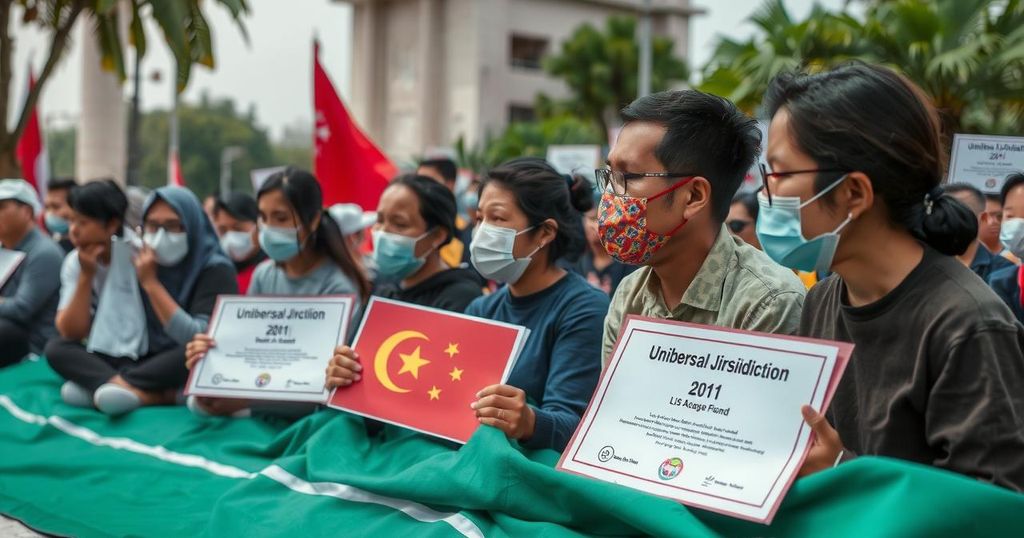Activists in Indonesia petition the Constitutional Court to allow universal jurisdiction for prosecuting Myanmar’s military junta for human rights abuses related to the 2021 coup. Notable figures support the initiative to extend jurisdiction beyond Indonesian nationals, advocating for accountability for foreign perpetrators. If granted, this could mark Indonesia as the first Southeast Asian nation to adopt universal jurisdiction, promoting regional human rights.
Indonesia’s Constitutional Court is deliberating a petition that proposes the introduction of universal jurisdiction, allowing the prosecution of international human rights violators, specifically targeting Myanmar’s military junta. This move comes as Indonesia seeks to hold accountable those implicated in serious human rights violations that occurred post-coup in Myanmar in 2021. The petitioners, comprising notable figures like former Attorney General Marzuki Darusman and the Alliance of Independent Journalists, contend that Indonesia should remove the stipulation of prosecution solely for Indonesian nationals, thereby extending this jurisdiction to foreign perpetrators of abuses committed abroad.
The case is currently in session with a nine-judge panel, and Judge Wahiduddin Adams indicated that they are considering proposed amendments to the petition before proceeding. The petitioners argue that universal jurisdiction aligns with Indonesia’s constitutional mandate to advocate for global peace and justice, reiterating that the state bears the responsibility to protect victims of egregious crimes irrespective of geographical boundaries. Global trends reveal that numerous countries have successfully employed universal jurisdiction; for instance, Argentina began investigating allegations of war crimes by the Myanmar military against Rohingya individuals.
The petition arises contextually from the ongoing crises in Myanmar, where the military coup has resulted in significant civilian casualties—over 2,300 deaths—since February 2021. The Indonesian government and other ASEAN member states have condemned the junta for failing to adhere to a consensus aimed at resolving the crisis. Activists emphasize the importance of this petition as a potential game-changer for human rights protections in Southeast Asia, positing that it could break down barriers to justice for victims in various regional contexts.
If successful, Indonesia would become the first Southeast Asian nation to embrace this significant legal principle, engendering discussions about accountability that extends beyond its borders, affecting the legal standing of both foreign and domestic individuals regarding human rights violations.
The concept of universal jurisdiction allows national courts to prosecute individuals for serious international crimes, regardless of where the alleged acts occurred or the nationality of the perpetrators. This legal principle has been utilized by various countries to seek justice for victims of grave violations, including war crimes and crimes against humanity, especially when the perpetrators are not subject to the jurisdiction of local courts. Indonesia’s evaluation of incorporating universal jurisdiction in its legal framework signals an increased commitment to address human rights abuses not only within its borders but in neighboring regions afflicted by similar crises, like Myanmar.
The deliberations of Indonesia’s Constitutional Court concerning the petition for universal jurisdiction represent a pivotal moment in Southeast Asia’s human rights landscape. Should the court grant this request, it would empower Indonesia to take a firm stance against international human rights abuses. By extending its reach beyond national boundaries, Indonesia would not only honor its constitutional obligations but also inspire neighboring nations to reconsider their own positions regarding accountability for egregious violations. This legal evolution could significantly enhance the prospects for justice and protection for victims across the region.
Original Source: www.benarnews.org






